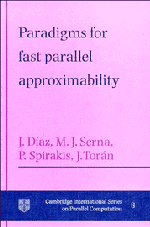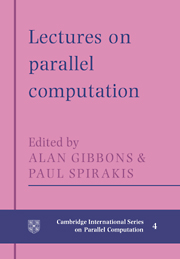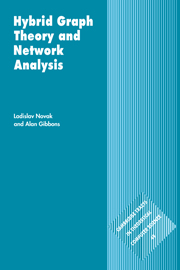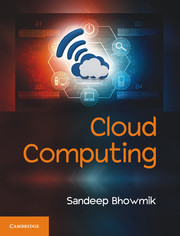Paradigms for Fast Parallel Approximability
Various problems in computer science are 'hard', that is NP-complete, and so not realistically computable; thus in order to solve them they have to be approximated. This book is a survey of the basic techniques for approximating combinatorial problems using parallel algorithms. Its core is a collection of techniques that can be used to provide parallel approximations for a wide range of problems (for example, flows, coverings, matchings, travelling salesman problems, graphs), but in order to make the book reasonably self-contained, the authors provide an introductory chapter containing the basic definitions and results. A final chapter deals with problems that cannot be approximated, and the book is ended by an appendix that gives a convenient summary of the problems described in the book. This is an up-to-date reference for research workers in the area of algorithms, but it can also be used for graduate courses in the subject.
- First book on subject
- Can be used as advanced text or reference
- Comprehensive and thorough
Reviews & endorsements
"This monograph reads as smoothly as a single-author work. It can serve as an excellent reference for those interested in algorithmic and computational complexity results in parallel approximability. It can also serve as an excellent introduction to the field for theoretical researchers." Computing Reviews
"This is an excellent monograph that surveys one of the key parts of recent algorithm and complexity theory. This book really corresponds to its title Paradigms of fast parallel approximability. Because of this it is much more than a survey on the recent development in this area. I strongly recommend it as a valuable source for graduate courses in the subject also." Juraj Hromkovi^Dvc, Mathematical Reviews
Product details
April 2011Adobe eBook Reader
9780511881886
0 pages
0kg
32 b/w illus.
This ISBN is for an eBook version which is distributed on our behalf by a third party.
Table of Contents
- 1. Introduction
- 2. Basic concepts
- 3. Extremal graph properties
- 4. Rounding, interval partitioning and separation
- 5. Primal-dual method
- 6. Graph decomposition
- 7. Further parallel approximations
- 8. Non-approximability
- 9. Syntactical defined phrases
- Appendix: Definition of problems
- Bibliography
- Index.







